Thomas Wolsey: Life Story
Chapter 5 : Diplomacy (1515 – 1518)
When Henry and Wolsey returned from France, it was to a seriously depleted treasury. Henry's ambition to emulate Henry V and conquer France could not realistically be supported. A hundred years before, England had territory in France that it could use as a base, far larger than the Calais Pale and the new towns won. France itself had been riven with civil war and led by a king who suffered from severe mental disturbances.
Things were very different by 1514. France was rich, united and led by a competent king, even though he was old by contemporary standards. The very idea that England, smaller, poorer and with a comparatively tiny population, could conquer France was a pipe-dream.
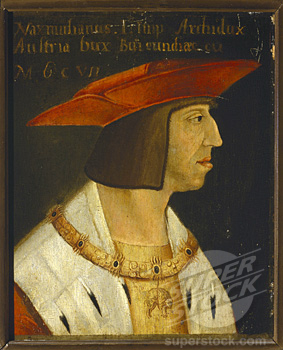
Henry may have wanted glory but he was not a fool, and he and Wolsey now looked to other means of making England a powerful force in Europe, which did not rely on war supported by unreliable allies. Both Maximilian and Ferdinand had taken Henry for a fool, and he would not forget the injury.
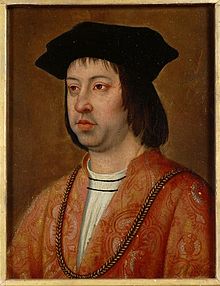
It had been agreed that Maximilian and Ferdinand's joint grand-son, Charles of Castile, would marry Henry's sister, Mary, on 15th May 1514, but Maximilian delayed and came up with excuses. His daughter, Marguerite, Regent of the Low Countries, urged her father to carry out the match as promised but he continued to procrastinate.
Whether Henry and Wolsey had always intended to serve Maximilian a dose of his own medicine and double-cross him, or whether the preparations for Mary's wedding, which involved vast expense and complex preparation, were just a bluff, must remain unknown. Nevertheless, as soon as it was apparent that the wedding, (which would have made Mary of England Empress in due course), was off, Henry and Wolsey were ready with another plan.
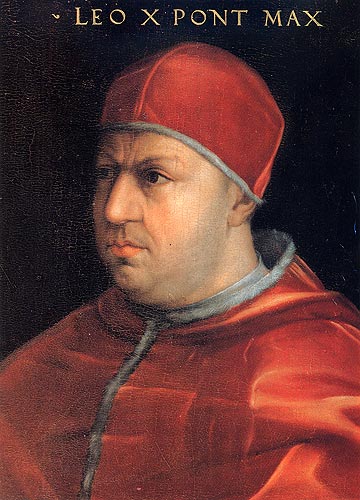
England would ally with France, pleasing the new Pope, Leo X, who was considerably less bellicose than his predecessor, and driving a wedge between Maximilian to the north of France, and Ferdinand to the south ( Read more about the background to European alliances here.)
The price was the marriage of Mary to Louis XII whose Queen, Anne of Brittany, had just died. Wolsey was a tough negotiator on the dowry and jointure, and Mary received some extraordinarily valuable jewels from her betrothed, who had no doubt heard her described as " the most attractive woman ever seen." In addition, Henry was to be allowed to keep Tournai and receive the back payments of the pension due to the English Crown from France.
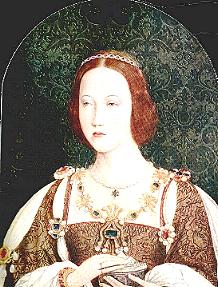
If Louis had lived long enough to give Mary a son, the English would have been cock-a-hoop. A regency presided over by the English King's sister would have been a splendid opportunity. As it was, Louis wore himself out undertaking his conjugal duties and was dead by Newy Year's Day 1515. During her marriage, Mary felt she was not well treated, and said to her brother that, had Wolsey accompanied her to France, rather than Norfolk, she would have been better handled.
The heir to the French throne, if Mary were not expecting a son, would be Francis d'Angouleme, married to Louis's daughter, Claude (French law did not permit the Crown to pass to a woman). Whilst Mary withdrew for the customary mourning period, Francis made strenuous efforts to seduce her, partly no doubt for personal pleasure, as he was a notorious womaniser, but partly to muddy any claim to the throne of a child she bore.
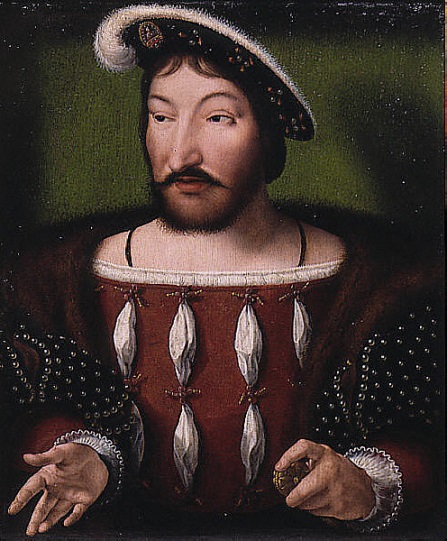
In the event, Mary was not pregnant, but she did cause a scandal by hastily marrying Charles Brandon, Duke of Suffolk, who had been sent to fetch her, after expressly swearing an oath in front of Wolsey and Henrythat he would not entertain such a marriage.
The young couple, once they had realised the enormity of their actions, wrote to Wolsey, begging his intercession with the King, which Wolsey, after telling them what a dangerous situation they were in, promised. He intimated that hard cash would soften the King's anger considerably, and eventually they were forgiven on promise of paying a huge fine.
This personal intervention with the King at the request of Mary, who was a Dowager Queen and Henry's own sister, shows the extent of Wolsey's influence. It was now becoming the object of resentment by the King's nobles, and also by the Queen.
For the first five years of their marriage, Katharine was probably the single greatest influence on Henry, but she could never be completely happy with a French alliance, even though she had been horrified by her father's betrayal of her husband and had firmly sided with Henry. It is likely that she felt jealous at a personal level too. Most wives would resent being supplanted in their husband's confidence by a third party.
The treaty with France was renewed with Francis, but the balance of power was about to shift dramatically again. Francis, much to Henry's chagrin, achieved a victory over the Emperor at Marignano in 1515 that was stunning in its magnitude, and assured Francis of the disputed Duchy of Milan.
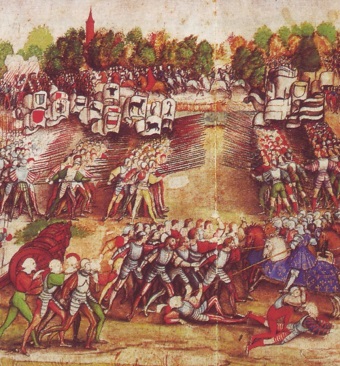
France was now riding too high. Men were dispatched from England to offer large sums of money to the Emperor to pay Swiss mercenaries, whilst a show of amity with France continued. Simultaneously, overtures were made to Charles, Maximilian's grandson, now King of Spain. Maximilian wrote gleefully to Charles that Charles could dupe the English, whilst he duped the French... True to form, Maximilian took the English gold, raised an army, then failed to fight.
Another solution had to be thought of to keep the balance of power, and Wolsey came up with a plan that would, he hoped, satisfy everyone and redound to his credit for all ages to come. Pope Leo was preaching a crusade, and whilst that might sound as though it were an old fashioned concept by the sixteenth century, it should not be forgotten that the Turks were advancing on Hungary, which they were to conquer in 1526.
The plan was for all the Christian Princes of Europe to swear eternal brotherhood and then concentrate on defending Christendom. The Treaty of London was signed in 1518.Intended as a non-aggression pact, some twenty-five European states were involved. All were to come to the aid of any of their number, if attacked. Wolsey received much of the credit for the treaty:
"Undoubtedly, My Lord, God continuing it (the Treaty) shall be the best that ever was done for the realm of England and after the King's Highness the laud and praise shall be to you a perpetual memory." – Bishop Foxe
Nevertheless, whilst the ink was still wet, most of the signatories were busy doing side deals. As part of a bilateral Anglo-French agreement, Henry VIII's daughter, Mary, was betrothed to the Dauphin.



